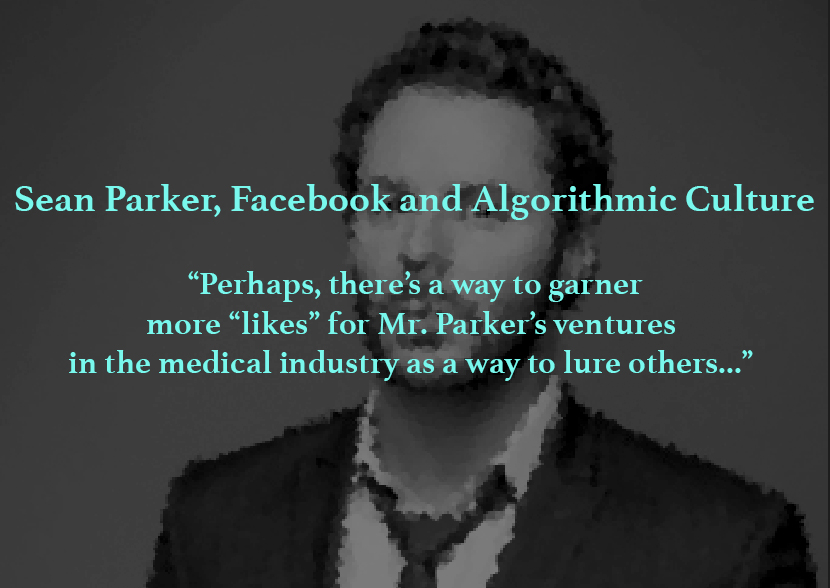As a site that expounds on the effect and affects of algorithms and how they’ve become part of today’s culture, we would be remiss to reserve commentary on Sean Parker’s remarks regarding Facebook. At an Axios event in Philadelphia, Mr. Parker suggested that Facebook’s success stems largely from an idea that exploits a “vulnerability in human psychology” in a seemingly endless loop of “social validation”. This vulnerability makes many susceptible to an addictive association with the platform, and why so many unyieldingly return to reaffirm their connection to the world.
The psychological architecture that perhaps is being constructed from this––especially in younger developing minds––is still unknown; however, the pernicious nature behind the development of a platform that enticed many by flirting with the pleasure principle is clear. If you’ve ever signed into your account to verify who’s liked your post, you’ve been influenced, affected. You’re a member of the behaviourally stirred, stimulated towards building on an identity––your identity, whatever that may be––real or digital it seems it can be constructed with algorithmic proficiency. Identity is defended upon with endless vigilance, a profound life and psychological enterprise. The influence is staggering, including how others may develop ideas or opinions in relation to what others express online; allegiances are made on emotional whim, and the ability to distance oneself from any social media chamber and flex one’s own independent and critical thinking skills becomes strained.
As there’s little doubt Mr. Parker’s Rolodex thinned out after his comments were publicized, Mr. Parker should be applauded for coming out and making them. Even more, Mr. Parker should be commended for his interest in pivoting away from startups that take advantage of the user to ones that heal and seek medical cures. His Parker Institute for Cancer Immunotherapy is one such project, an undertaking that brings scientists and other experts in their field in need of organization and funding, to share ideas and research that will propel a new generation of therapeutical treatments and cures.
By creating collaborative organizations such as these with various groups to spur on treatments for patients in need is something that should be trending on social media. Research is often limited to grants and within the stuffy confines of academic institutions, while a handful of pharmaceutical companies produce drugs while also possessing easy access to capital and resources for INDs––an area likely in need of rejuvenation in terms of leadership and funding, moving away from stagnant models of research and development. Many are suffering from disease, and speed of research truly is of the essence. The medical community, and the science and medical industry, are on the cusp of great things––CRISPR being one of them––but they’ll need funding and leadership to speed the process of research and clinical trials towards finding cures for viruses and various genetic disorders; and conceivably, radical new models of collaboration between for-profit and non-profit entities should be engineered. Perhaps, there’s a way to garner more “likes” for Mr. Parker’s ventures in the medical industry as a way to lure others, including other venture capitalists and billionaire philanthropists to do the same. Now there’s an addiction we could all get used to seeing.

